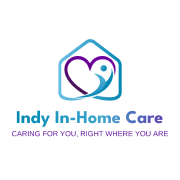
Managing everyday activities might become more challenging as our loved ones get older. Whether mobility problems, cognitive decline, or medical ailments call for in-home care, it’s essential to know the tell-tale indicators. Though many families find this difficult, knowing when to seek professional help can improve their quality of living.
Essential assistance is provided by home care providers like Indy HomeCare, which also offers customized home care services that fit the demands of elderly people. If you have seen behavioral changes in your loved ones, you may be ready to investigate how a care nurse can assist. This post will review essential indicators of the need for in-home care and ways professional caregivers could enhance senior quality of life.
1. Physical Decline and Mobility Issues

Many times, aging brings movement issues that complicate once-easy chores. Your loved one could be ready for aid if they have difficulty moving.
Signs to Look For:
- Many stumbles or unstable walking
- Problems rising from beds or seats
- Seeking support from furniture or walls.
- Find difficulty walking great distances or climbing stairs.
Daily tasks include walking, getting from bed to wheelchair, and maintaining a safe home environment, which may be helpfully assisted by home care providers such as Indy HomeCare. A home care nurse may help reduce falls and injuries through mobility assistance and assistive device recommendations.
2. Poor Personal Hygiene
One of the most apparent signs that in-house care is required is neglect of personal hygiene. Physical restrictions or cognitive problems may cause your loved one difficulty grooming, clothing, or bathing.

Common signs:
- Strong body smell or irregular shower frequency
- Dressing in mismatched or unclean clothing
- Overgrown nails and untidy hair
- Problems independently using the toilet
Discreet and polite personal care assistance from a care nurse can help your loved one keep clean and comfortable while preserving their dignity.
3. Neglecting to eat or consume poor quality food.
Maintaining good health depends on nutrition, although many seniors find it difficult to cook or forget to eat altogether. Malnutrition, weight loss, and weakness may follow this.

Alert Notes:
- Fridge food that has gone bad or expired.
- Absence of appetite or rapid weight loss
- Has trouble cooking or using kitchen equipment.
- Growing dependence on processed meals or unhealthy snacks
Meal planning, grocery shopping, and cooking—all of which a home care nurse may help—ensure your loved ones get the proper nutrients. Expert caregivers additionally watch for nutritional requirements and promote hydration.
4. Memory Loss and Cognitive Decline
Clear indicators of cognitive impairment include behavioral changes like forgetfulness and bewilderment. Your loved one could be due in-home care if they often miss appointments, lose objects, or ask the same questions.

Important Metrics:
- Ignoring names, dates, or daily schedules.
- Time or location confusion
- Challenges controlling bills and money.
- Getting lost in known territory
Home care services let people with memory loss remain secure and follow a regular schedule. Offering specific help for people living with dementia and Alzheimer’s, a disability care nurse may provide necessary reminders and emotional comfort.
5. Neglected Household Work
Your loved one can find everyday cleaning difficult if their residence has become messy or unhygienic. As one age, maintaining duties becomes more challenging; disregarding them might result in dangerous living circumstances.

Red flags:
- Tower of filthy dishes or laundry.
- Dirty bathrooms and surfaces.
- Unopened mail and unpaid invoices
- decreased home upkeep
Senior citizens may perform domestic chores with in-home care services, maintaining clean, orderly, safe surroundings. The door-to-door service of a care nurse may also help with home safety improvements.
6. Growing loneliness and isolation

Reduced mobility, death of loved ones, or trouble participating in social events may all cause loneliness among many seniors. Their mental and emotional state could suffer from social isolation.
Loneliness Symptoms:
- Disinterest in pastimes and activities
- Enhanced despair, anxiety, or sadness
- Expressing emotions of hardship.
Helping elders remain involved and connected, a home care nurse offers emotional support, company, and conversation. Social connection dramatically enhances the quality of life; caregivers may help to promote involvement in virtual or neighborhood activities.
7. Struggling with Medications
Especially for seniors with cognitive problems, juggling many drugs might be perplexing. Skipping drugs or incorrect doses might cause significant medical issues.

Typical Pharmacy Issues:
- Ignoring to pick up prescriptions
- Taking the wrong dose or medication
- Lost or expired medications
- Uncertainty about drug regimens
Medication reminders, pill schedule organization, and accurate prescription taking are capabilities of a disability care nurse. This lessens possible health hazards as well as hospital visits.
8. Unexplained Damage or Bruises
Regular falls and injuries might point to diminishing mobility or balance problems. You should look more profound if you see odd wounds, bruises, or reluctance to move.

Signs to Look For:
- Unjustified bandages or bruises
- Pain complaints arising from standing or walking
- Anxiety related to avoiding motion or falling
- Refuctance to talk about current injuries
Reducing fall hazards, helping with mobility, and offering 24-hour monitoring help elders remain safe via care services.
9. Dangerous Driving Behaves
Driving calls for high cognitive ability and fast reflexes. It might be time to discuss other transportation choices if your loved one finds driving challenging.

Alert Signs:
- Unexplained car scratches or dents
- Getting lost on regular paths of travel.
- Ignoring signs or traffic lights
- Passenger complaints about dangerous driving
By helping with transportation, a care nurse’s door-to-door service may ensure elders show up for appointments safely without running the dangers of driving.
10. Burnout Among Caregivers

Stress, tiredness, and emotional pressure abound among family caregivers. Seeking expert in-home care might provide much-needed respite if you feel overwhelmed.
Indicators of burnout in caregivers:
- Constant stress and tiredness.
- Resentment or frustration emotions
- Challenge juggling obligations for care and personal life.
- Changing mental or physical state of health
Home care services provide respite care and assistance that enhances general well-being, helping elders and family caregivers.
Advantages of homeward care
Many advantages come from in-home care, guaranteeing elders get help in familiar settings.
Benefits of House Care Services:
- Customized treatment catered to specific requirements
- More comfort and freedom.
- Companionship and emotional support
- Safety and less risk of falls or injuries
- Help with everyday chores, meds, and cleanliness.
Selecting a home care nurse can help aging loved ones have a much better quality of life by offering compassionate treatment while preserving their dignity and liberty.
Conclusion
Although it might be difficult, knowing when your loved one needs in-home care can help to enhance their quality of life considerably. Whether they need help with mobility, personal hygiene, cooking meals, or companionship, a care nurse can give necessary services to advance safety and well-being.
Home care services guarantee elders get the required assistance and allow them to keep their freedom. If you have seen any of the indicators listed in this article or behavioral changes, consider contacting an Indy Home Care provider. Starting with appropriate treatment at the proper moment helps to improve life.
